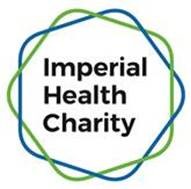Over time, residents of Hammersmith and Fulham have kindly shared their experiences of being a victim of a variety of either hate crime or hate incident.
What is hate crime or incident?
According to the definition provided by the Metropolitan Police is as follows. “A hate crime is defined as ‘Any criminal offence which is perceived by the victim or any other person, to be motivated by hostility or prejudice based on a person’s race or perceived race; religion or perceived religion; sexual orientation or perceived sexual orientation; disability or perceived disability and any crime motivated by hostility or prejudice against a person who is transgender or perceived to be transgender.’
A hate incident is any incident which the victim, or anyone else, thinks is based on someone’s prejudice towards them because of their race, religion, sexual orientation, disability or because they are transgender.
Not all hate incidents will amount to criminal offences, but it is equally important that these are reported and recorded by the police”
During the listenings, residents have shared the devastating impact of hate crime and incidents from which it is evident the profound and long lasting effects on the community. For some who have shared that they have reported incidences and or crimes had different response from some services, others did not consider it serious enough to be reported.
In terms of reporting and seeking support, residents shared the following:
- Most residents shared that they reported to the police in the first instance.
- For all residents were not aware of other agencies to liaise with.
- Residents reported that they sought support independently from families and friends
- One resident declined to seek support through fear and intimidation
The advice from the police is always report a hate crime and or hate incidence to the police
Presently, Hammersmith and Fulham Council are keen to meet with organisations, groups – small informal and formal, community leaders to share information on the council`s offer, who to liaise with and involvement of other organisations.
If you are interested in meeting with Hammersmith and Fulham Council`s Community Safety Unit, please contact Jessica Twomey by emailing Jessica.Twomey@lbhf.gov.uk
Some Useful links:
- LBHF – Hate Crime: https://www.lbhf.gov.uk/crime/hate-crime
- CPS Hate crime: https://www.cps.gov.uk/crime-info/hate-crime
- MET Police: What is Hate Crime? https://www.met.police.uk/advice/advice-and-information/hco/hate-crime/what-is-hate-crime/
- Hate Crime in England and Wales 2021 – 2022: https://www.gov.uk/government/statistics/hate-crime-england-and-wales-2021-to-2022/hate-crime-england-and-wales-2021-to-2022#:~:text=Religious%20hate%20crimes%20increased%20by%2037%20per%20cent%20between%20year,from%2018%2C596%20to%2026%2C152%20offences).




